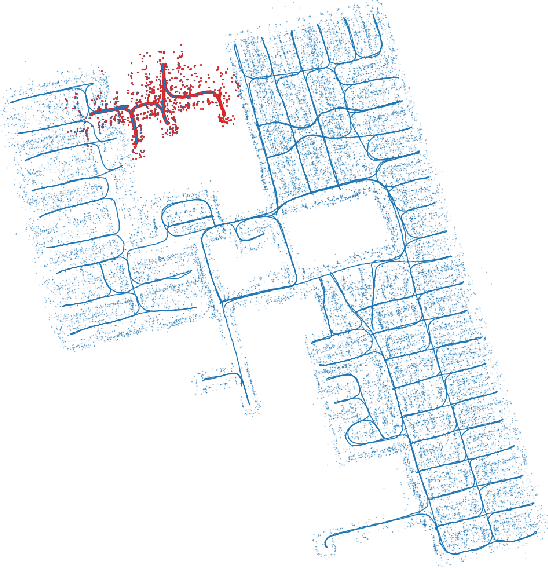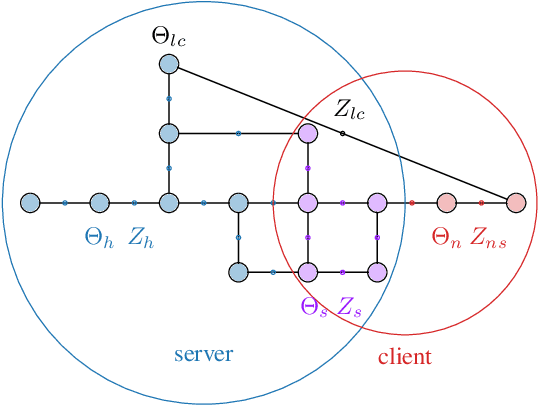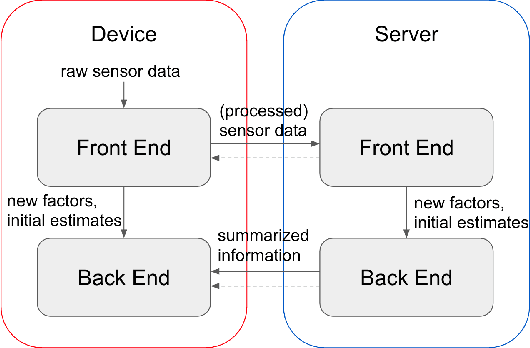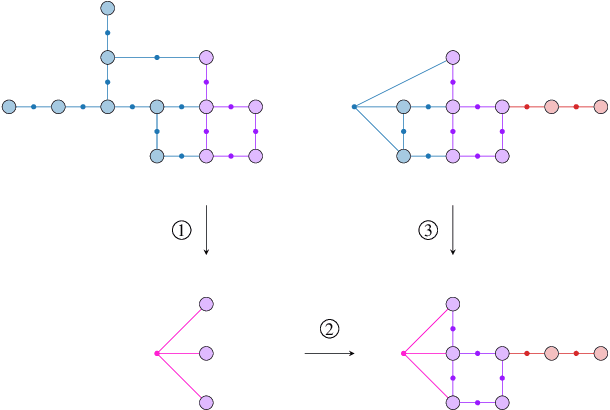Ming Hsiao
Decentralization and Acceleration Enables Large-Scale Bundle Adjustment
May 15, 2023



Abstract:Scaling to arbitrarily large bundle adjustment problems requires data and compute to be distributed across multiple devices. Centralized methods in prior works are only able to solve small or medium size problems due to overhead in computation and communication. In this paper, we present a fully decentralized method that alleviates computation and communication bottlenecks to solve arbitrarily large bundle adjustment problems. We achieve this by reformulating the reprojection error and deriving a novel surrogate function that decouples optimization variables from different devices. This function makes it possible to use majorization minimization techniques and reduces bundle adjustment to independent optimization subproblems that can be solved in parallel. We further apply Nesterov's acceleration and adaptive restart to improve convergence while maintaining its theoretical guarantees. Despite limited peer-to-peer communication, our method has provable convergence to first-order critical points under mild conditions. On extensive benchmarks with public datasets, our method converges much faster than decentralized baselines with similar memory usage and communication load. Compared to centralized baselines using a single device, our method, while being decentralized, yields more accurate solutions with significant speedups of up to 953.7x over Ceres and 174.6x over DeepLM. Code: https://github.com/facebookresearch/DABA.
Distributed Client-Server Optimization for SLAM with Limited On-Device Resources
Mar 26, 2021



Abstract:Simultaneous localization and mapping (SLAM) is a crucial functionality for exploration robots and virtual/augmented reality (VR/AR) devices. However, some of such devices with limited resources cannot afford the computational or memory cost to run full SLAM algorithms. We propose a general client-server SLAM optimization framework that achieves accurate real-time state estimation on the device with low requirements of on-board resources. The resource-limited device (the client) only works on a small part of the map, and the rest of the map is processed by the server. By sending the summarized information of the rest of map to the client, the on-device state estimation is more accurate. Further improvement of accuracy is achieved in the presence of on-device early loop closures, which enables reloading useful variables from the server to the client. Experimental results from both synthetic and real-world datasets demonstrate that the proposed optimization framework achieves accurate estimation in real-time with limited computation and memory budget of the device.
 Add to Chrome
Add to Chrome Add to Firefox
Add to Firefox Add to Edge
Add to Edge